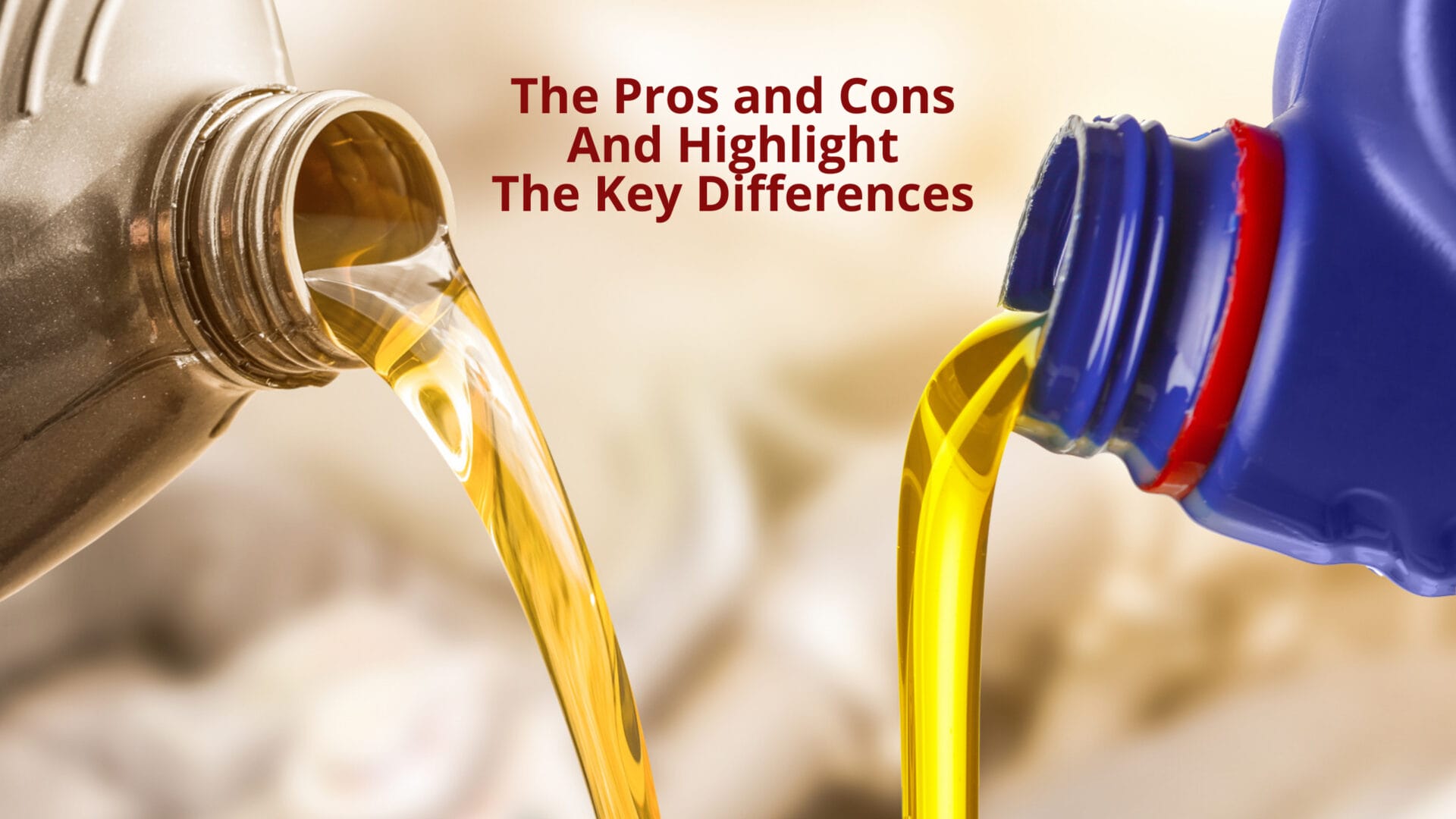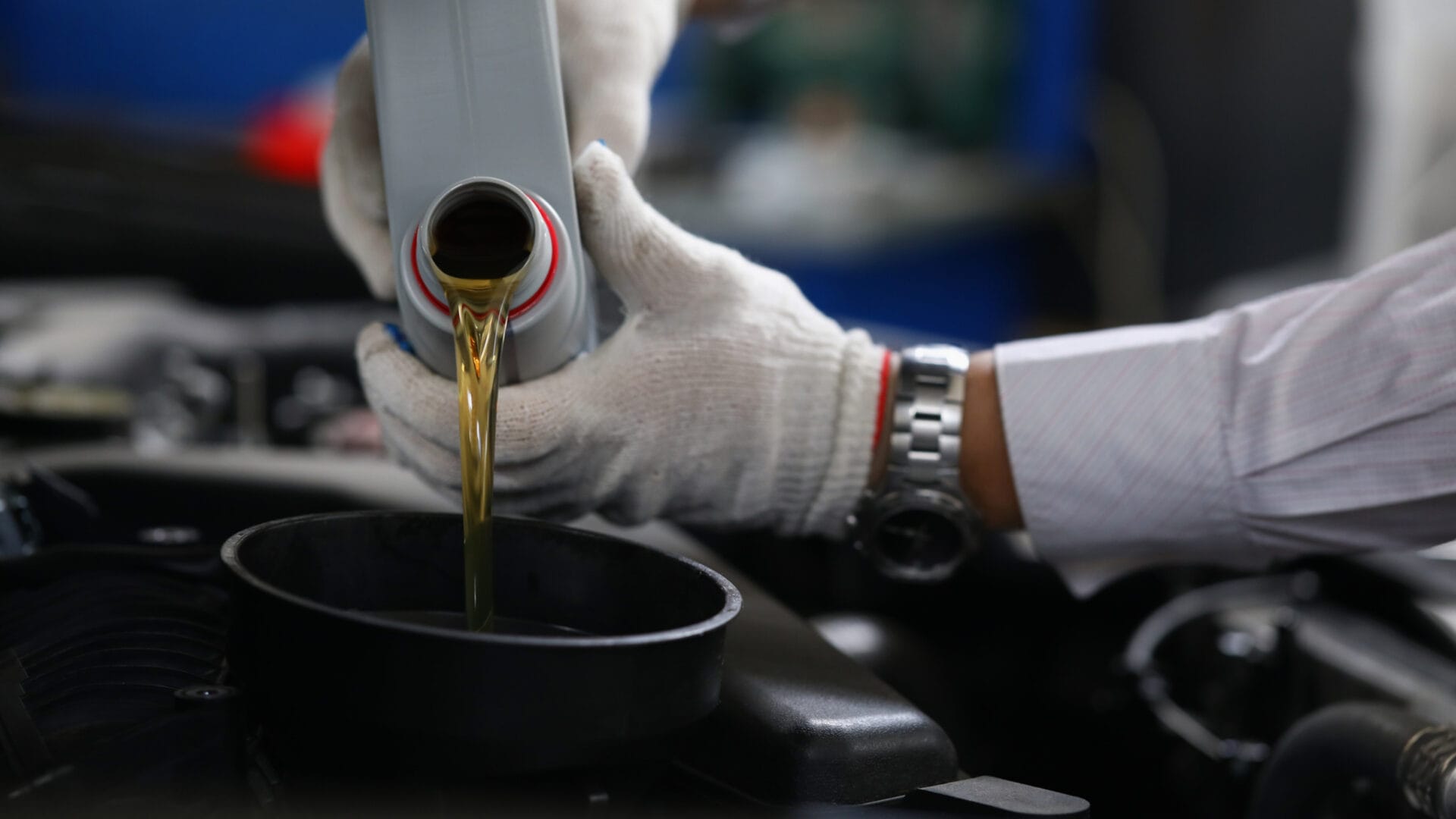Can You Use Dexron VI Instead of Dexron III?
Imagine you’re gearing up for a long-awaited road trip, meticulously checking every detail of your vehicle to ensure a smooth journey. As you inspect your transmission fluid, you wonder, “Can you use Dexron VI instead of Dexron III?” It’s a tempting thought, especially if Dexron VI seems more readily available or you’ve heard it’s an improved version. However,
The answer is no. Both of these fluids are automatic transmission fluids, but they have different formulas. Dexron VI is a more advanced synthetic fluid for modern automatic transmissions. If you introduce Dexron VI to a system that was originally designed for Dexron III, it might not be compatible and could cause some problems.
Here, we’ll discuss why substituting Dexron VI for Dexron III is not recommended, the pros and cons of each, and highlight the key differences so you can make an informed decision with certainty.

Dexron VI and Dexron III Unveiled
Let’s wade through the basic nitty-gritty of Dexron VI and III and unravel the advancements and characteristics. It will clarify any confusion you have regarding Dexron VI and Dexron III.
Dexron VI
Did you know that Dexron VI came from a collaboration between Ford and GM in 2005?
Ford developed the Mercon Low VIscosity Fluid, while GM released the Dexron VI. Dexron VI has a lower VIscosity level. This improves the transmission’s pumping efficiency and keeps the fluid stable.
Yet, it’s important to note that it’s thinner than Dexron III. Use suitable mixtures that won’t change when stirred to keep it thick.
It’s important to know that Dexron VI may not work with Dexron III versions H and G, despite some people’s beliefs. But they could work as a perfect fit for your transmission.
Dexron VI Perks
- Dexron VI incorporates cutting-edge technology for improved transmission performance.
- Offers superior oxidation stability, leading to a longer fluid life.
- Enhanced friction control contributes to smoother and more efficient shifting.
- Greater shear stability ensures consistent transmission performance over time.
Drawbacks
- Dexron VI typically comes with a higher price tag compared to Dexron III.
- In certain older vehicles, the performance improvements may be less significant, such as pre-2006 general motors vehicles, older dodge vehicles and pre-2010 Ford vehicles.
Dexron III
This is a type of transmission oil that GM released in 1993. It’s made up of group 2+ base oils and additives. Plus, it’s worth mentioning Dexron III is better than Dexron II.
It has improved friction stability, high-temperature oxidation stability and material compatibility. Moreover, Dexron III has a few limitations, such as shear stability and fluid oxidation.
Now, to address these issues, GM released multiple variations of the Dexron III, such as the Dexron III (F, G, H). A specific letter and license number serve as indicators for these versions.
For example, H-30001. The new versions have improved foam control, reduced shuddering and addressed friction maintenance.
Dexron III was commonly used in automatic transmissions. This includes those with a torque converter lockup clutch. In 2011, they replaced Dexron III with Dex/Merc, which still meets the same standards.
Dexron III Perks
- Dexron III has a proven track record of providing reliable performance in various transmission systems.
- Generally more budget-friendly compared to Dexron VI.
Drawbacks
- Lacks some of the advanced features found in Dexron VI.
- Doesn’t have the same level of oxidation stability, leading to a potentially shorter fluid life.
Why can’t you Use Dexron VI Instead of Dexron III?
The updated VI version of the fluid is synthetic and may not be strategically made to replace Dexron III. Therefore, using the recommended fluid is best to ensure optimal transmission performance and longevity.
Now, let’s discuss why it’s crucial to always use the recommended specification for your particular vehicle-

Compatibility
Dexron VI is a more recent type of transmission fluid designed for contemporary transmissions. At the same time, Dexron III is an older specification. If you use Dexron VI instead of Dexron III and your vehicle was designed to use Dexron III, compatibility issues may arise, potentially damaging the transmission components.
Friction Properties
The hydraulic systems in your transmission are specifically designed to work with certain types of ATF. Utilizing the wrong fluid, such as Dexron VI instead of Dexron III, can potentially affect the transmission’s friction properties, resulting in irregular shifting and increased wear.
Heat Dissipation
Modern transmissions are created with specific ATF formulations to handle the heat generated during operation. The use of the wrong fluid may result in overheating, which could cause damage to the transmission components.
Seal Compatibility
The seals and gaskets in your transmission are designed to work with specific ATF formulations. If you use a different type of fluid, it may cause the seals to degrade, which could lead to leaks and potential transmission failure.
Warranty Concerns
Utilizing an incorrect ATF may void your vehicle’s warranty. Manufacturers often recommend specific fluids to ensure optimal performance and longevity of the transmission. It’s always best to refer to your vehicle’s owner’s manual to determine the correct ATF specification.
Where They Shine and Falter?
Let’s look closer at the strengths and weaknesses of Dexron III and Dexron VI transmission fluids.[1]
| Characteristics | Dexron III | Dexron VI |
| Flow Characteristics | Thicker fluid (30.2) | Thinner fluid (26) |
| Higher resistance | Lower resistance, flows easily, even in cold | |
| Durability | Shorter shelf life | Longer shelf life, more cost-effective |
| Oxidation Stability | Stable at high temperatures | Even more robust, handles challenging tasks |
| Frictional Stability | Reduces friction better than older Dexron versions | Excellent performance, especially in dynamic friction |
| Application Versatility | Common in commercial vehicles, power steering | Works in old and new transmissions, including most 2006 automatic transmissions |
Can I use Dexron 3 instead of Dexron 6
No, using Dexron 3 instead of Dexron 6 is not recommended. Dexron 6 has advanced additives for modern transmissions, providing better performance and protection. Dexron 3 lacks these additives, potentially causing harm to your transmission over time. Stick to Dexron 6 for optimal function and longevity.
FAQs
Is Dexron VI an upgrade over Dexron III?
Yes. Dexron VI is a more advanced synthetic fluid designed to meet the evolving requirements of modern automatic transmissions.
Will using Dexron VI in a Dexron III system cause issues?
Yes. To ensure optimal performance and avoid any potential issues, it is recommended that you use Dexron III in a system designed for it.
Can Dexron VI be used in older vehicles that recommend Dexron III?
No. It’s not recommended, as the newer Dexron VI may not be compatible with the older transmission systems designed for Dexron III.
Are there any benefits to using Dexron III over Dexron VI in some instances?
No. Dexron VI is formulated to provide enhanced performance and protection, making it generally superior to Dexron III for modern vehicles. Using the recommended fluid is crucial for optimal transmission function and longevity.
Is mixing Dexron VI with Dexron III in the transmission fluid okay?
No. Mixing different transmission fluid formulations is not advisable, as it can compromise the fluid’s performance and potentially harm the transmission system.
Can using Dexron VI instead of Dexron III improve my vehicle’s transmission performance?
No. While Dexron VI is a superior fluid for modern transmissions, using it in a system designed for Dexron III won’t necessarily improve performance. It may lead to complications due to incompatible formulations.
Conclusion
See, using Dexron VI instead of Dexron III may not always result in immediate catastrophic failure. Still, it can lead to suboptimal transmission performance, increased wear, and potential long-term damage. Following the vehicle manufacturer’s recommendations for the correct ATF to use in your specific transmission is always advisable. After all, we want to ensure that your transmission operates at its best, so please make the right choice by using the recommended ATF.






